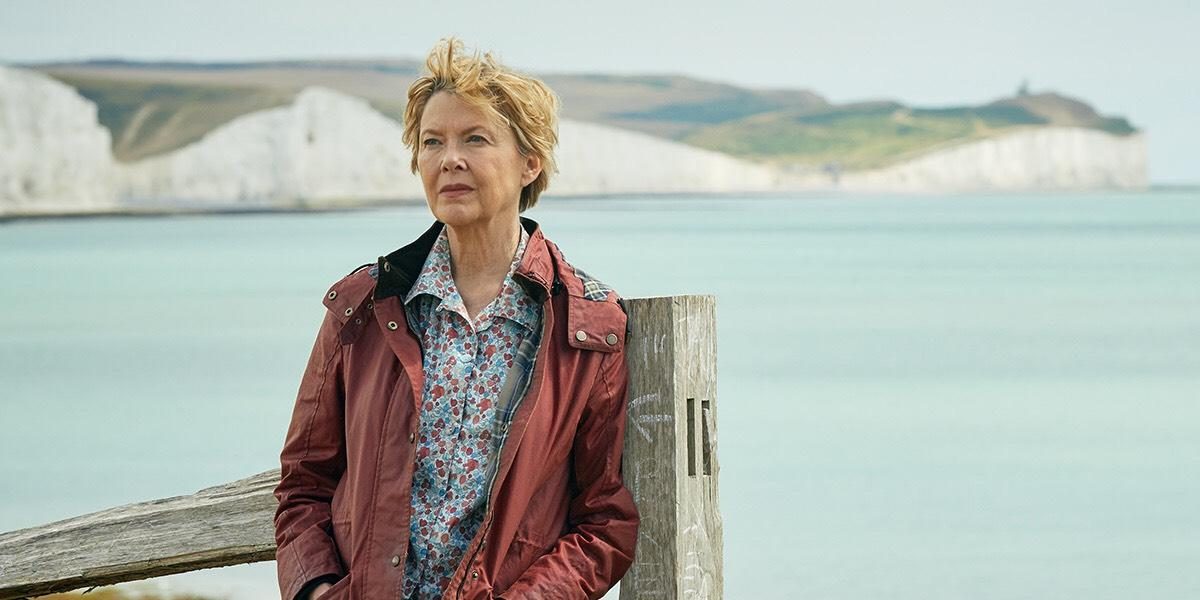“I have been here before.”
It’s a line from a Dante Gabriel Rossetti poem that is repeated multiple times throughout the William Nicholson film “Hope Gap” and you’ll be thinking about it as the film ends. The film, which had its world premiere last week at the Toronto International Film Festival (TIFF), began as a play (also by Nicholson) with a more unusual title – “The Retreat from Moscow”. That title is part of a running allusion in both play and film to the way injured soldiers were abandoned to save the lives of the strong as the invading French army retreated from Moscow in 1812. Let go of deadweight or perish was their ideology, likened to an injured party leaving a deadweight relationship. Both titles, “Hope Gap” and “The Retreat from Moscow”, which are evocative in different ways, seem imperfect for the story that Nicholson is telling.
“Hope Gap” is quite specific. A marriage falls apart after 29 years when a husband confesses to an affair. The couple’s adult son must pick up the pieces of the broken marriage and in that description “Hope Gap” might seem incredibly trite, but Nicholson – in his film debut as a director – has learned enough from his screenwriting days (as writer notably on “Shadowlands” and “Gladiator”) and he puts that to work here. “Hope Gap” is familiar and tried in what it’s writing about. “Hope Gap” is about stories we’ve lived through and the way our most personal experiences are past tense for someone else.
Grace is a literary savant and teacher and her husband Edward is a history teacher. He is diffident to the point of reticence, while she is assertive to the point of abrasiveness. The marriage is harried but in that way where you assume both parties are fine. Except they are not. And Grace’s certainty in her marriage, despite its issues, crumbles when Edward announces that he’s leaving her while their son is on a visit back home. The rest of the film traces the way the trio adapt, and don’t adapt, to the new situation and in that way it is necessarily plot-less. The film never truly seeks to resolve the who and what of the divorce and the characters never truly come to a eureka moment about its implications. Instead Nicholson gently, but steadily, traces the way the characters react. The son, Connor, stands in the middle, torn between a newly free father, and a newly embittered mother. A film like this is only as good as the pillars holding it up and the trio of Annette Bening, Billy Nighy and Josh O’Connor are the surest ensemble of the year at TIFF.

At the opening night Q&A, Nicholson discussed the genesis of the film – his own parents’ divorce – and the naked emotions on screen affirm that. “Hope Gap” is tough and challenges in ways of not making things palatable, and yet Nicholson’s thoughtful script and even Nighy and O’Connor’s good performances (O’Connor, in particular, is moving in a difficult role) are overshadowed by Annette Bening’s performance as Grace. Bening has always excelled at playing the abrasiveness in women that might be called difficult. In this way Grace is an extension of Carolyn Burnham or Julia Lambert or Dorothea Fields but it’s a savvy characterisation. At every turn Bening opts to play Grace’s anger and resentment rather than her victimhood and pain, and it makes the journey of this woman’s acceptance (or non-acceptance) of her fate fascinating to watch. Late in the film, she considers her own anger, “The thing about unhappiness is that after a while it gets boring,” she says. But Grace’s unhappiness is anything but boring.
It’s a credit to Nicholson that he manages to take his stage play to the screen without any evidence of anything being lost in translation. He’s particularly fond of the outdoors, privileging shots of the terrain around the family’s home as a place for observatory assessments of the family’s dynamic. It’s not especially ambitious stuff visually but it’s dependable and solid, which is enough to provide the film with the necessary levity to cut against the film’s sad air. Nicholson also has a good ear for dialogue, so that the deadpan humour complements the most painful sequences in some surprising ways.
Late in the film, a character says angrily, “It can’t be wrong if it’s true.” The other characters are less certain, but it’s that awareness of the difficulty of casting blame that works so well on film. This is knotty and complex stuff and the audience at the premiere was split when Nicholson asked them to choose sides. “Hope Gap” will resonate for any family that has experienced divorce. It’s likely to be overshadowed by the flashier “Marriage Story,” also enjoying a North American premiere at TIFF, but the tender smallness of “Hope Gap” has much to appreciate. At the end, I was fascinated by its defiance of any resolution. Bening is the film’s shining beacon but “Hope Gap” offers a tender perspective of something that feels true to life.





